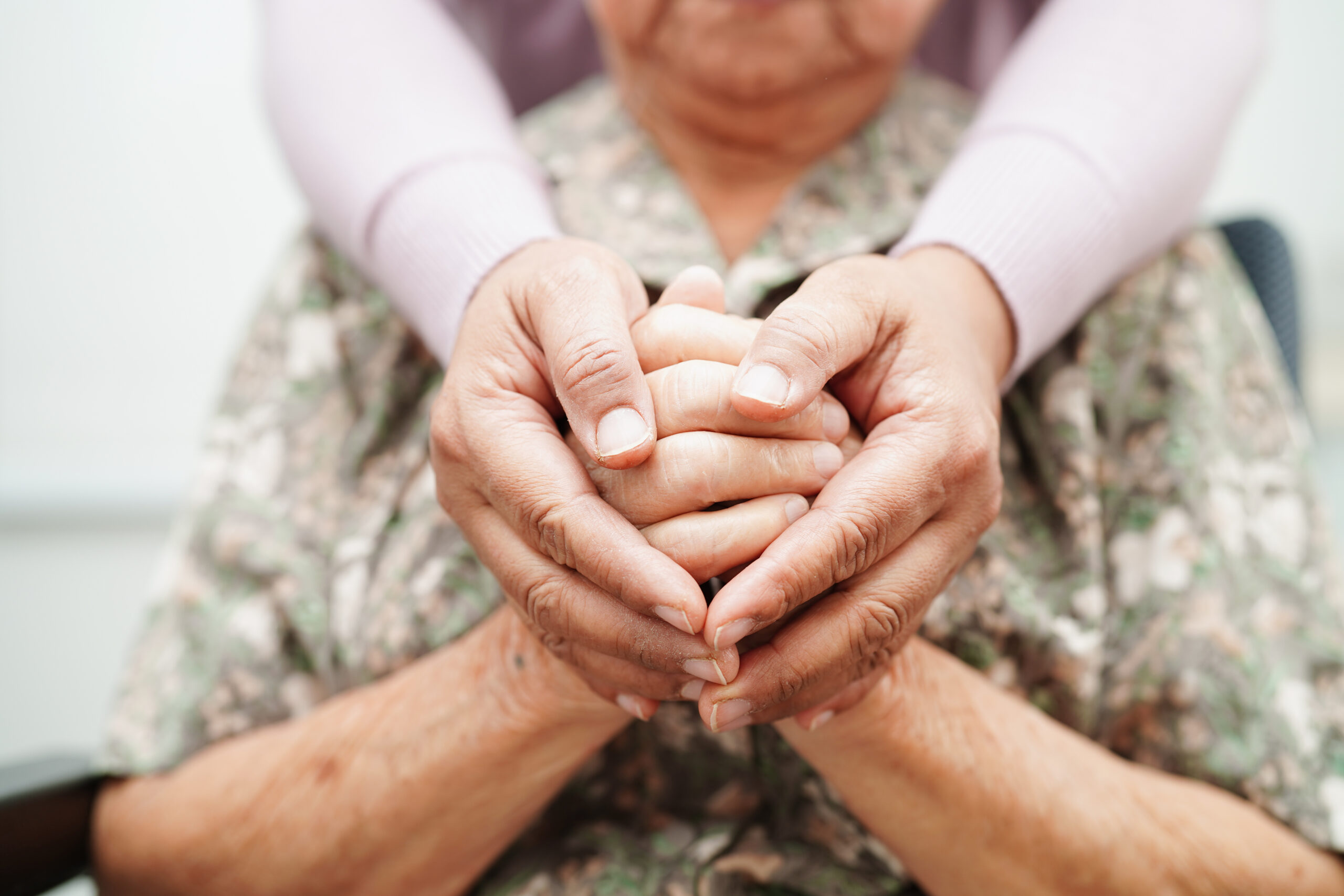Navigating the Uncharted Waters of End-of-Life Care
End-of-life caregiving is a journey unlike any other, a profound and often challenging path that calls upon the deepest reserves of love, strength, and resilience. It is a role that many of us will assume at some point in our lives, stepping into a space of immense responsibility and unwavering dedication. For family caregivers, this journey is a delicate dance between profound love and the heavy weight of making critical decisions during a time of immense vulnerability. It is a testament to the human spirit, a final act of service to those who have shaped our lives. This comprehensive guide is designed to be a compassionate companion on this journey, a source of both practical guidance and emotional solace. We recognize that preparing for the end of a loved one’s life is not a simple checklist of tasks, but a deeply emotional and spiritual odyssey. It is about honoring a life well-lived, ensuring comfort and dignity in the final chapters, and navigating a landscape of complex emotions and choices. Our intention is to empower you, the family caregiver, with the knowledge, resources, and support to face this period with courage, grace, and the peace of mind that comes from knowing you are providing the best possible care for your loved one. We will walk with you through the emotional terrain, the practical preparations, and the challenging medical decisions, offering a steady hand and a supportive voice in the midst of uncertainty. This is a journey of love, and you do not have to walk it alone.
The Emotional Landscape: Acknowledging the Weight of the Journey
Caregiving, especially during the end-of-life phase, is an intensely emotionally charged experience that can feel like navigating a turbulent sea. It is absolutely crucial to acknowledge, validate, and allow yourself to feel the full spectrum of emotions that will inevitably arise during this profound period. You may find yourself cycling through a bewildering array of feelings: deep grief, moments of unexpected anger or frustration, profound sadness, gnawing fear about the future, and even fleeting glimpses of joy or profound connection that can catch you by surprise. These emotions are not merely normal; they are an intrinsic and essential part of the caregiving process, a natural human response to witnessing a loved one’s final journey. Attempting to suppress or ignore these powerful feelings can be detrimental, often leading to caregiver burnout, emotional exhaustion, and a sense of isolation that can make an already arduous journey even more difficult. The first, and perhaps most vital, step toward navigating this complex emotional landscape with greater ease and self-compassion is to understand and accept that these feelings are valid, natural, and part of your unique experience. Give yourself permission to feel them without judgment, recognizing that they are a testament to the depth of your love and commitment.
Grief and Anticipatory Loss
One of the most pervasive and often bewildering emotions in end-of-life caregiving is grief, particularly the phenomenon known as anticipatory loss. This isn\’t merely the grief that follows a loved one\’s passing; it\’s a complex, ongoing sorrow that begins much earlier, as you witness their gradual decline, the erosion of their independence, and the inevitable shifts in your relationship dynamics. You might find yourself grieving the loss of shared dreams, future plans, familiar routines, or even the vibrant personality traits that once defined your loved one. This form of grief is unique because it coexists with the present reality of your loved one\’s presence, creating a poignant blend of love, sadness, and longing. Anticipatory grief can manifest in a myriad of ways, both emotionally and physically. You might experience profound sadness, frequent bouts of crying, heightened irritability, difficulty concentrating on tasks, or noticeable changes in your sleep patterns and appetite. Some caregivers report feeling a sense of detachment, while others become overly protective. It’s a natural, albeit painful, response to a profound and impending change. It’s crucial to understand that allowing yourself to feel these emotions, rather than attempting to suppress or rationalize them away, is vital for your mental, emotional, and even physical well-being. This grief is not a sign of weakness; it is a powerful testament to the depth of the love and connection you share with your loved one. Giving yourself permission to acknowledge and process this grief, even while your loved one is still with you, is a crucial step toward healing and maintaining your capacity to care with compassion. Seek out safe spaces to express these feelings, whether with a trusted friend, a support group, or a grief counselor. Understanding that this complex emotional process is a normal part of the end-of-life journey can provide immense comfort and validation.
The Caregiver’s Identity Shift
As caregiving responsibilities intensify, particularly in the emotionally demanding context of end-of-life care, many family caregivers experience a profound and often disorienting shift in their own identity. The roles that once defined you – as a spouse, child, sibling, friend, professional, or hobbyist – can become deeply intertwined with, and at times, seemingly overshadowed by, the all-encompassing role of caregiver. This transformation can lead to a complex tapestry of emotions, including confusion about who you are outside of this new role, a palpable sense of loss for your former self, and even moments of resentment towards the situation, which are often quickly followed by waves of guilt. It’s a delicate and often exhausting emotional dance. It is vital to consciously remind yourself that your identity as a caregiver is an addition to who you are, not a replacement. You are still the multifaceted individual you were before, now with an added layer of profound responsibility and compassion. To navigate this shift healthily, it’s incredibly restorative to actively seek out and maintain aspects of your pre-caregiving self, no matter how small or seemingly insignificant. This might involve dedicating a short, consistent block of time each week to a beloved hobby, making an effort to connect with friends who understand and support you, or engaging in activities that rekindle your individual passions and remind you of your unique interests. Acknowledging this identity shift openly and honestly allows you to consciously work towards integrating your caregiving role into your broader sense of self, rather than allowing it to consume your entire being. This integration is crucial for maintaining your mental health, preserving your sense of self-worth, and ultimately, sustaining your capacity to provide loving care without losing yourself in the process.
Seeking Emotional Support and Respite
It is an undeniable truth that no one can, or indeed should, attempt to navigate the arduous end-of-life caregiving journey in isolation. The emotional, physical, and mental toll is simply too profound to bear alone. Seeking emotional support is not a concession to weakness; rather, it is a powerful demonstration of self-awareness, strength, and a commitment to sustainable care. This vital support can manifest in numerous forms: the unwavering presence of trusted friends, the understanding embrace of family members, the shared wisdom found within support groups specifically tailored for caregivers, or the expert guidance of professional counselors and therapists. Sharing your innermost feelings, fears, and experiences with others who genuinely understand can be incredibly validating, alleviating the suffocating weight of isolation and providing invaluable coping strategies and perspectives. Beyond emotional solace, practical relief is equally crucial. Respite care, far from being a luxury, is an absolute necessity for safeguarding your own health and maintaining your capacity to provide compassionate care. Taking regular breaks, even if they are brief, allows you to physically rest, emotionally decompress, and mentally recharge. These periods of respite are not just for you; they ultimately benefit your loved one by ensuring you remain a present, patient, and effective caregiver. When family caregivers find themselves in need of additional support, or when the demands of caregiving necessitate a temporary break, services like those offered by sharphomecare.com stand ready to assist. They can provide professional in-home assistance, offering skilled care that ensures your loved one’s needs are met. They also offer companion care, providing social interaction and supervision, and crucial respite care, which allows you to step away, knowing your loved one is in capable hands. This ensures continuity of excellent care while affording you the essential time to attend to your own well-being. It is a fundamental principle of caregiving: self-care is not selfish; it is the bedrock upon which sustainable, compassionate care is built. Prioritizing your own needs allows you to continue giving from a place of strength, rather than depletion.
Practical Preparations: Laying the Groundwork for Peace of Mind
Beyond the profound emotional complexities that define end-of-life caregiving, there lies an equally critical realm of careful practical planning. Proactively addressing these practicalities is not merely a logistical exercise; it is a powerful act of love and foresight that can significantly alleviate stress, prevent crises, and ensure that your loved one’s deeply held wishes are not only heard but meticulously honored. This meticulous preparation provides an invaluable sense of peace for everyone involved, transforming a potentially chaotic period into one of structured compassion. This comprehensive section will serve as your guide through the labyrinth of understanding various care options, navigating the often-daunting financial considerations, and recognizing the indispensable importance of cultivating and leveraging a robust support network. By laying this groundwork thoughtfully, you empower yourself to face the future with greater confidence and control, knowing that every effort has been made to create a dignified and comfortable environment for your loved one’s final journey.
Understanding End-of-Life Options
Making informed decisions about end-of-life care begins with understanding the available options. These choices are deeply personal and should align with your loved one’s values, preferences, and medical condition. Open and honest conversations with your loved one, their medical team, and other family members are paramount.
Palliative Care vs. Hospice Care
It’s a common misconception to use palliative care and hospice care interchangeably, yet they serve distinct, albeit often overlapping, purposes, both fundamentally centered on enhancing comfort and maximizing the quality of life for individuals facing serious illnesses. Understanding the nuances between these two approaches is paramount for making informed and appropriate care decisions for your loved one.
Palliative care is a broad philosophy of care that can be initiated at any stage of a serious illness, from diagnosis through treatment and beyond. Its primary objective is to provide relief from the symptoms, pain, and stress of a serious illness, whatever the diagnosis. The goal is to improve the quality of life for both the patient and their family. Crucially, palliative care can be provided alongside curative treatments, meaning a person can still be actively seeking a cure for their illness while simultaneously receiving palliative support. This holistic approach addresses physical, emotional, spiritual, and practical needs, often involving a team of doctors, nurses, social workers, and other specialists. It focuses on managing symptoms like pain, nausea, fatigue, and shortness of breath, as well as providing emotional and spiritual support to help patients and families cope with the challenges of illness.
Hospice care, conversely, is a specific type of palliative care designed for individuals who have a life expectancy of six months or less, as certified by a physician, and who have made the conscious decision to forgo aggressive curative treatments in favor of comfort-focused care. While hospice care is always palliative in nature, not all palliative care is hospice. Hospice care emphasizes managing pain and other distressing symptoms, ensuring the patient remains as comfortable and alert as possible. It extends its support beyond the patient to the entire family, offering comprehensive emotional, spiritual, and practical assistance, including bereavement services for up to a year after the loved one’s passing. Hospice care is typically provided in the patient’s home, allowing them to remain in a familiar and comforting environment, though it can also be offered in dedicated hospice facilities, hospitals, or nursing homes. The focus shifts entirely from prolonging life to enhancing the quality of the life that remains, honoring the patient’s wishes for a peaceful and dignified end. Making the transition to hospice care is a significant decision, often signaling a shift in goals from cure to comfort, and it is a decision best made through open dialogue with your loved one, their medical team, and your family.
Advance Directives and Legal Documents
One of the most critical and empowering practical steps you can take is to ensure that your loved one’s wishes regarding medical treatment and end-of-life care are meticulously documented through what are known as advance directives. These legally binding documents serve as your loved one’s voice, articulating their preferences and values when they may no longer be able to communicate them directly. Having these in place is not only an act of profound respect for their autonomy but also an immense gift to you, the caregiver, as it alleviates the crushing burden of making agonizing decisions in moments of crisis. Key documents to consider and discuss include:
Living Will: This vital document provides explicit instructions about the types of medical treatments your loved one wishes to receive or refuse in specific end-of-life situations. It can cover decisions regarding life-sustaining treatments such as resuscitation (CPR), mechanical ventilation, artificial nutrition and hydration (feeding tubes), and dialysis. A living will ensures that their personal values and preferences guide medical interventions, even if they are unconscious or otherwise incapacitated. Durable Power of Attorney for Healthcare (Healthcare Proxy or Medical Power of Attorney): This document designates a trusted individual, often the primary caregiver, to make healthcare decisions on your loved one’s behalf if they become unable to do so themselves. The designated agent has the authority to interpret the living will and make decisions that align with the patient’s known wishes and best interests. It’s crucial to choose someone who understands and respects your loved one’s values, and who can remain calm and advocate effectively under pressure. Do Not Resuscitate (DNR) Order: A DNR is a specific medical order written by a doctor, indicating that no extraordinary measures, such as CPR, should be taken to revive your loved one if their heart stops or they stop breathing. This decision is often made in consultation with the patient and family, reflecting a desire for a natural and peaceful passing rather than aggressive interventions that may prolong suffering without improving quality of life. Physician Orders for Life-Sustaining Treatment (POLST) or Medical Orders for Life-Sustaining Treatment (MOLST): In some states, these forms are used in addition to or instead of traditional advance directives. POLST/MOLST forms are actual medical orders signed by a healthcare professional and the patient (or their surrogate), providing actionable instructions for current medical treatment. They are designed to be portable and recognized across different healthcare settings, ensuring that a patient’s wishes are honored immediately.
Beyond merely completing these documents, it is imperative to discuss them openly and thoroughly with your loved one, ensuring their contents accurately reflect their current wishes. Verify that these documents are legally valid in your specific state, as requirements can vary. Once completed, keep original copies in a safe, accessible place, and distribute copies to all relevant parties: your loved one’s primary care physician, specialists, hospital admissions, and all family members involved in their care. This proactive approach not only safeguards your loved one’s autonomy but also significantly reduces potential conflicts and emotional distress among family members during an already trying time. It transforms abstract wishes into concrete, actionable plans, providing clarity and peace of mind for everyone involved in the end-of-life journey.
Financial Planning and Resource Management
The financial implications associated with end-of-life care can be profoundly substantial and, unfortunately, are often overlooked or underestimated until a crisis situation forces them into immediate focus. Engaging in proactive and meticulous financial planning is not merely a recommendation; it is an absolute necessity that can dramatically mitigate stress, prevent financial hardship, and ensure that precious resources are allocated effectively and in alignment with your loved one\’s wishes. This foresight allows for a smoother, more dignified transition and reduces the burden on family caregivers. Consider the following critical areas:
Comprehensive Insurance Coverage Review: Delve deeply into all existing health insurance policies, including Medicare, Medicaid, and any private insurance plans. It is imperative to understand precisely what services are covered, what the deductibles and co-pays entail, and what limitations might exist. Pay particular attention to coverage for home health services, hospice care (both in-home and inpatient), durable medical equipment (DME) such as wheelchairs or oxygen, and prescription medications. Don\’t hesitate to contact insurance providers directly to clarify any ambiguities and obtain written confirmation of benefits. Understanding these details upfront can prevent unexpected out-of-pocket expenses. Long-Term Care Insurance Assessment: If your loved one possesses a long-term care insurance policy, now is the time to thoroughly understand its benefits, activation triggers, and limitations. Familiarize yourself with the claims process, required documentation, and any waiting periods. These policies can be a significant financial asset, covering costs for in-home care, assisted living facilities, or nursing homes, thereby preserving other assets. Veterans Benefits Exploration: For loved ones who are veterans, a wealth of potential benefits may be available through the Department of Veterans Affairs (VA). These can include the Aid and Attendance benefit, which provides additional monetary assistance for veterans and their surviving spouses who require the aid of another person to perform daily activities. Other benefits might cover home care services, hospice care, or even specialized medical equipment. Connecting with a VA accredited claims agent or a veterans service organization can help navigate the application process and maximize eligible benefits. Meticulous Estate Planning and Legal Documentation: Ensure that all estate planning documents are not only in place but are also current and accurately reflect your loved one\’s wishes. This includes wills, trusts, and beneficiary designations for all financial accounts, life insurance policies, and retirement funds. Procrastination in this area can lead to significant legal complications, delays, and emotional distress for surviving family members. Consulting with an elder law attorney is highly recommended. These legal professionals specialize in the complex intersection of elder care, healthcare, and financial planning, providing invaluable guidance in navigating these intricate areas, protecting assets, and ensuring a smooth transfer of property. Realistic Budgeting and Resource Identification: Develop a comprehensive and realistic budget that meticulously accounts for all anticipated expenses. This should include ongoing medical expenses, prescription medications, medical supplies (e.g., incontinence products, wound care supplies), and potential caregiving costs, whether for professional in-home assistance or for family caregivers who may need to reduce work hours. Beyond personal funds, actively explore community resources and non-profit organizations. Many local agencies offer financial assistance programs, subsidized services, or support groups that can alleviate financial strain. Social workers, hospital discharge planners, and hospice care coordinators are excellent resources for identifying these often-underutilized programs. Creating a clear financial roadmap provides transparency and helps manage expectations for all involved family members.
Building a Support Network: You Don\’t Have to Do It Alone
While you may be the primary caregiver, bearing the brunt of daily responsibilities and emotional weight, it is absolutely vital to remember that you are not an island. You are, and should be, part of a larger, interconnected ecosystem of support. The act of building, nurturing, and strategically leveraging a strong support network is not a luxury; it is a fundamental pillar of sustainable end-of-life caregiving. This network serves multiple crucial functions: it can effectively distribute the often-overwhelming responsibilities, provide much-needed emotional relief and validation, and ultimately, significantly enhance the overall quality of care your loved one receives. A robust support system acts as a buffer against burnout, a source of practical assistance, and a wellspring of emotional resilience, ensuring that you, the caregiver, can continue your invaluable work without becoming completely depleted.
The Role of Family and Friends
In the demanding landscape of end-of-life care, the support of family members and close friends can be an invaluable lifeline. It is crucial to overcome any reluctance or hesitation and actively reach out to your inner circle. Often, people genuinely want to help but may feel unsure of how to offer meaningful assistance, or they might be hesitant to intrude. Your role, then, becomes one of clear communication and specific delegation. Instead of vague offers of help, provide concrete examples of tasks that would alleviate your burden. Perhaps a family member can take on grocery shopping, prepare a few meals each week, handle laundry, or manage household chores. A friend might be able to sit with your loved one for a few hours, allowing you to attend appointments, run errands, or simply take a much-needed break. Sometimes, the most profound help comes in the form of a listening ear, someone with whom you can share your fears, frustrations, and moments of sadness without judgment. Delegating tasks not only lightens your immense load but also empowers others to feel actively involved and supportive, fostering a sense of shared responsibility and community. To ensure everyone is aligned and to prevent misunderstandings, consider establishing regular family meetings. These gatherings can serve as a forum to coordinate care schedules, discuss any emerging concerns, address emotional challenges, and collectively ensure that everyone is on the same page regarding your loved one’s wishes, care plan, and the overall trajectory of their end-of-life journey. Clear communication and shared understanding within your family unit are paramount to creating a cohesive and effective support system.
Professional In-Home Assistance and Companion Care
In the demanding and often unpredictable landscape of end-of-life care, there will inevitably be moments when the sheer volume and complexity of caregiving responsibilities surpass what even the most dedicated family and friends can realistically provide. This is particularly true when specialized medical care is required, or when the emotional and physical toll on the primary caregiver becomes unsustainable. In these crucial instances, professional in-home assistance emerges not just as a helpful option, but as an invaluable and often essential resource. Services such as those meticulously offered by sharphomecare.com provide a comprehensive spectrum of support designed to seamlessly integrate into your loved one’s home environment. This can range from highly skilled nursing care, which addresses complex medical needs, to essential personal care assistance, covering daily activities such as bathing, dressing, feeding, and mobility support. Beyond the physical aspects of care, companion care plays a vital role. Professional companions offer much-needed social interaction, engaging your loved one in conversation, activities, and providing supervision that ensures their safety and well-being. They can also assist with light household tasks, contributing to a comfortable and orderly living space. The presence of a compassionate companion can significantly reduce feelings of loneliness and isolation for your loved one, while simultaneously offering you, the family caregiver, invaluable peace of mind. These professional services are not one-size-fits-all; they are meticulously tailored to your specific needs and your loved one’s preferences, ensuring a continuity of high-quality care that respects their dignity and promotes their comfort. It is crucial to understand that seeking and investing in professional support is never a sign of personal failure or inadequacy. On the contrary, it is a profoundly strategic and wise decision that underscores your commitment to providing the best possible care for your loved one, while simultaneously safeguarding your own health and preventing the debilitating effects of caregiver burnout. When family caregivers find themselves needing additional support, whether it’s for a few hours a day or more extensive assistance, professional in-home assistance can truly be a lifeline. It allows you to shift your focus from the exhaustive demands of daily tasks to nurturing your relationship with your loved one, cherishing the precious moments that remain, and attending to your own critical need for rest and rejuvenation. This balanced approach ensures that both the caregiver and the cared-for can navigate this sensitive period with greater comfort, dignity, and support.
Navigating Medical Decisions and Hospital Stays
End-of-life care is an intricate tapestry woven with threads of compassion, practical support, and, inevitably, a series of complex medical decisions. Despite meticulous planning for comfort and dignity at home, there will often be instances where medical emergencies, acute symptom management, or necessary diagnostic procedures necessitate a hospital stay. These periods can be profoundly unsettling and stressful, disrupting established routines and adding new layers of complexity to the already demanding role of caregiving. As a family caregiver, you transition into a crucial and indispensable advocate for your loved one, serving as their voice, ensuring their deeply held wishes are respected, and meticulously overseeing that they receive the most appropriate and compassionate care. This comprehensive section is designed to equip you with the knowledge and strategies to effectively prepare for and navigate these critical moments, transforming potential chaos into managed care and informed advocacy.
Communicating with Healthcare Professionals
Effective and empathetic communication with doctors, nurses, social workers, and other healthcare providers is not merely important; it is absolutely paramount to ensuring your loved one receives the best possible care aligned with their wishes. As the family caregiver, you often serve as the vital bridge between your loved one’s deeply personal preferences and the complex expertise of the medical team. Navigating these conversations can be challenging, but with strategic preparation and a clear understanding of your role, you can become an incredibly effective advocate. Here are some comprehensive tips for mastering these crucial interactions:
Thorough Preparation is Key: Before every appointment, meeting, or significant discussion, dedicate time to meticulously prepare. Write down a detailed list of all your questions, concerns, and observations regarding your loved one’s condition, symptoms, and any changes you’ve noticed. Bring a dedicated notebook or use a digital note-taking app to record information during discussions, including names of healthcare professionals, key decisions, and next steps. This proactive approach ensures that no critical information is overlooked and that you can refer back to discussions accurately. Be Assertive, Yet Always Respectful: Your role as an advocate requires a delicate balance of assertiveness and respect. Never hesitate to ask for clarification if something is unclear, request a second opinion if you feel it’s warranted, or ask for more time to process information and make significant decisions. Remember, you are your loved one’s voice and their primary protector in the healthcare system. While advocating fiercely, maintain a respectful demeanor, fostering a collaborative relationship with the medical team rather than an adversarial one. Demystify Medical Jargon: Healthcare professionals often use complex medical terminology that can be confusing and intimidating. It is your right, and indeed your responsibility, to ask them to explain terms, diagnoses, prognoses, and treatment plans in clear, understandable, plain language. If you don’t understand something, ask them to rephrase it or provide analogies until you grasp the full meaning. Don\’t feel embarrassed to ask for repeated explanations; your comprehension is vital for informed decision-making. Maintain a Comprehensive Medical Journal: Create and diligently maintain a detailed medical journal or binder. This should include a chronological record of all diagnoses, medications (with dosages and schedules), treatments received, upcoming appointments, and contact information for every healthcare provider involved in your loved one’s care. This journal serves as a single, centralized source of truth, ensuring continuity of care, providing a comprehensive overview of your loved one’s medical history, and proving invaluable during transitions between care settings or when consulting new specialists. Actively Involve Your Loved One: If your loved one is cognitively able and expresses a desire to participate, ensure they are an active part of these discussions. Their input is not just valuable; it is paramount. Their autonomy and preferences should be respected and prioritized as much as possible. Even if their ability to communicate is limited, finding ways to include them, such as asking yes/no questions or observing their non-verbal cues, can empower them and honor their dignity. Your role is to facilitate their participation and ensure their voice is heard, even if you are the one speaking on their behalf.
When Hospitalization Becomes Necessary
Despite the most meticulous and heartfelt planning for end-of-life care within the comforting familiarity of home, there will inevitably be instances where medical emergencies, acute symptom exacerbations, or necessary diagnostic procedures necessitate a hospital stay. This transition can be profoundly unsettling and stressful, not only for your loved one but also for you, the family caregiver. It disrupts established routines, introduces new environments, and adds layers of complexity to an already demanding caregiving role. However, by understanding what to anticipate and equipping yourself with effective advocacy strategies, you can transform these challenging periods into managed care experiences.
Unwavering Advocacy for Comfort and Dignity: Hospital environments, with their bustling activity and clinical atmosphere, can often feel overwhelming and depersonalizing. Your role as an advocate becomes even more critical here. Ensure that the medical team is not only aware of your loved one’s advance directives but also deeply understands their preferences for comfort care, pain management, and a peaceful, respectful environment. Do not hesitate to voice concerns if you feel these preferences are not being met. Your persistent advocacy ensures that dignity remains at the forefront of their care, even in a high-acuity setting. Proactive Engagement with the Care Plan: Upon admission, and throughout the hospital stay, actively engage with the medical team to fully comprehend the purpose of the hospitalization, the expected duration, and the detailed treatment plan. Ask specific questions about medications, procedures, and potential outcomes. Crucially, inquire about the discharge plan from the outset: what resources will be available for continued care at home, what follow-up appointments are needed, and what new challenges might arise? A clear understanding of the trajectory of care empowers you to plan effectively for the transition back home. Streamlined Communication with Family: Hospitalizations can be a source of anxiety for extended family members. To maintain clarity and reduce your burden, designate one primary contact person for the medical team. This individual can then disseminate updates to other family members, ensuring consistent information flow and preventing repetitive inquiries to medical staff. Regular, concise updates can alleviate family stress and allow you to focus on your loved one. Essential Support During Hospital Stays: The demands of a hospital stay can be physically and emotionally exhausting for caregivers, often requiring long hours at the bedside and constant vigilance. It is unrealistic and unsustainable to expect yourself to be present and alert 24/7. When family caregivers need relief during hospitalizations, or require an extra set of eyes and hands to ensure continuous oversight, specialized services like those provided by thehospitalsitters.com offer invaluable support. Hospital sitters provide non-medical companionship, offering a comforting presence, monitoring your loved one for changes in condition or distress, assisting with basic non-medical needs (like fetching water or adjusting pillows), and promptly alerting nursing staff to any concerns. This specialized support allows you, the primary caregiver, to rest, attend to other critical responsibilities, or simply take a much-needed break, secure in the knowledge that your loved one is never alone and always has a compassionate advocate present. This is not a luxury; it is a vital component of sustainable caregiving during acute medical crises.
Self-Care for the Caregiver: Sustaining Your Well-being
It is a truth universally acknowledged, yet often tragically overlooked in the demanding world of caregiving: you cannot pour from an empty cup. This adage holds particularly true in the context of end-of-life care, where the emotional, physical, and mental demands are immense and unrelenting. Self-care, therefore, is not a mere luxury or an indulgence; it is an absolute, fundamental requirement for sustainable, compassionate, and effective end-of-life caregiving. To neglect your own physical health, emotional well-being, and mental fortitude is to ultimately compromise your capacity to provide the highest quality of care for your loved one. Indeed, prioritizing self-care is one of the most profound acts of love you can extend – both to yourself, ensuring your resilience, and to the person you are caring for, guaranteeing that you can remain present, patient, and effective throughout their final journey. It is a strategic investment in your own well-being that yields dividends in the quality of care you can provide.
Setting Boundaries and Prioritizing Needs
In the all-encompassing world of end-of-life caregiving, the lines between your needs and your loved one\’s needs can quickly blur, leading to a state where caregiving becomes entirely all-consuming. To prevent this, and to ensure your long-term effectiveness and well-being, it is absolutely essential to proactively establish and rigorously maintain healthy boundaries. These boundaries are not a sign of selfishness; they are vital protective measures for your time, energy, and precious emotional reserves. This might manifest in various ways: learning to graciously say no to additional requests that stretch you too thin, effectively delegating tasks to other family members or professional services, or meticulously scheduling specific, non-negotiable times for personal activities that replenish your spirit. Beyond boundaries, prioritizing your basic physiological and psychological needs is non-negotiable. Adequate sleep, consistent nutritious meals, and regular physical activity – even something as simple as a short daily walk or a few minutes of stretching – can make a profound difference in your physical health and mental clarity. It is a fundamental truth that your loved one’s needs are critically important, but it is equally true that your needs are important too. Finding a sustainable balance between these demands is the cornerstone of avoiding debilitating caregiver burnout and maintaining the resilience required for this marathon, not a sprint. Remember, a depleted caregiver cannot provide optimal care; by nurturing yourself, you are ultimately nurturing your loved one.
Finding Moments of Joy and Connection
Amidst the relentless challenges and often somber realities of end-of-life caregiving, it is not just beneficial but absolutely vital to actively cultivate and seek out moments of joy, connection, and normalcy. These moments, however fleeting or seemingly insignificant, possess an immense power to replenish your spirit and sustain your emotional reserves. They are the small anchors that keep you grounded and remind you of the beauty that still exists in the world. This might involve intentionally setting aside time to listen to your favorite music, immersing yourself in a captivating book for a few minutes, spending time outdoors in nature to reconnect with its calming rhythms, or simply engaging in heartfelt conversations with friends who offer understanding and laughter. If circumstances permit, make a conscious effort to continue engaging in hobbies or activities that brought you pleasure before your caregiving role became so central. These pursuits are not mere distractions from your duties; they are essential components of your holistic well-being, acting as vital conduits that replenish your spirit, offer fresh perspectives, and remind you of your identity beyond caregiving. Cherish the quiet, tender moments shared with your loved one – a gentle touch, a shared smile, a comforting silence. Find humor where you can, and celebrate small victories, whether it’s a good day for your loved one, a successful outing, or simply making it through a particularly tough moment. These shared experiences, even in the most difficult of times, have the profound capacity to strengthen your bond, create new, precious memories, and infuse the journey with a sense of purpose and enduring love. These moments are not luxuries; they are necessities for maintaining your emotional equilibrium and finding meaning in the midst of profound change.
Conclusion: Embracing the Journey with Compassion and Strength
Preparing for end-of-life caregiving decisions is, without a doubt, one of the most profound, challenging, and ultimately transformative experiences any individual or family can undertake. It is a journey that calls upon the deepest wells of emotional fortitude, demands meticulous practical foresight, and requires an unwavering commitment to upholding your loved one’s comfort, dignity, and cherished wishes. While the path is often fraught with emotional pain, difficult choices, and moments of exhaustion, it is equally an unparalleled opportunity for deep connection, the expression of profound and unconditional love, and significant personal growth. Through the crucible of caregiving, many discover an inner strength and resilience they never knew they possessed.
By consciously acknowledging and validating the complex emotional landscape that defines this period, by diligently planning for the myriad practicalities that arise, by advocating effectively and compassionately within medical settings, and by fiercely prioritizing your own well-being and self-care, you can navigate this sacred journey not just with survival in mind, but with a sense of greater confidence, purpose, and inner peace. Remember, you are never truly alone on this path. Lean into the support of your trusted network of family and friends, and do not hesitate to leverage the invaluable assistance offered by professional resources. Services like sharphomecare.com can provide essential in-home assistance, specialized companion care, and much-needed respite, ensuring that your loved one receives expert attention while you gain crucial moments to recharge. Similarly, during the often-stressful periods of hospitalization, specialized support from services like thehospitalsitters.com can offer a comforting presence and vigilant oversight, allowing you to rest assured that your loved one is cared for even when you cannot be physically present.
This journey, in all its complexity and emotional depth, is a powerful testament to the enduring power of love and the remarkable strength of the human spirit. Embrace it with an open heart, extending compassion not only to your beloved family member but also, and equally importantly, to yourself. Know that every thoughtful decision, every comforting touch, every moment of presence, and every act of self-preservation is a meaningful and sacred act of care, contributing to a legacy of love and dignity that will resonate long after the final farewell.















